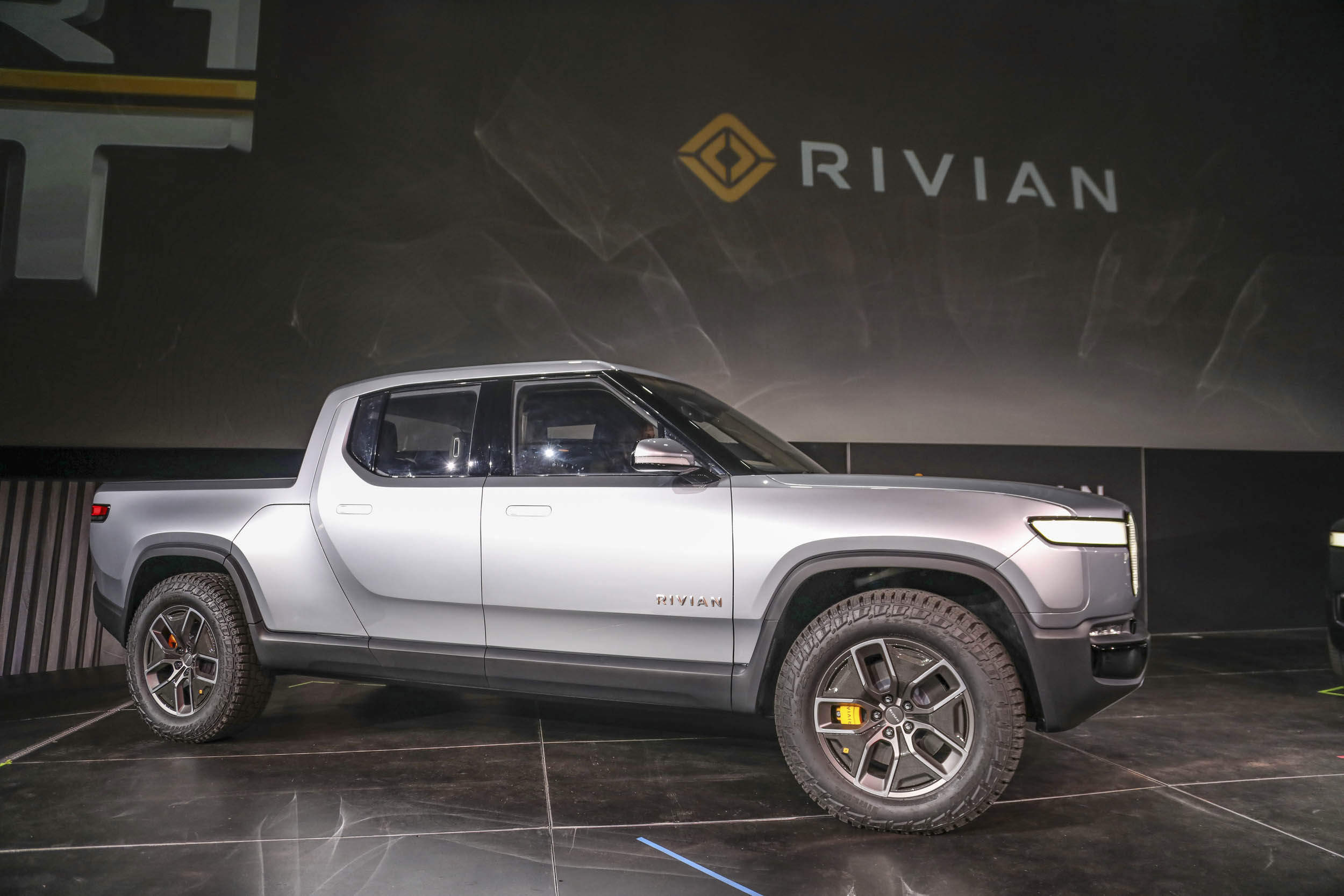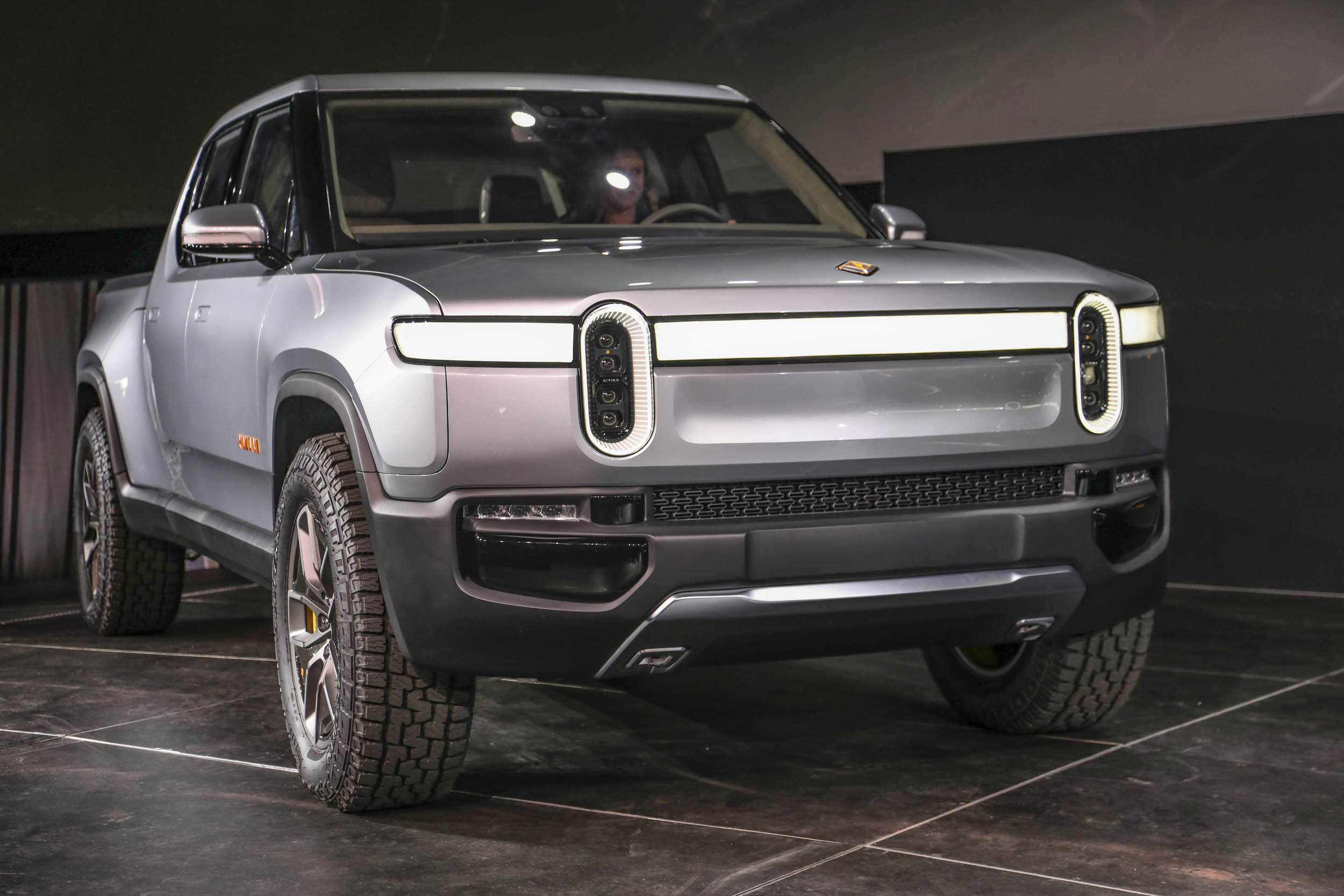Can you tow your classic car with an electric truck?
Making a truck powered by batteries is simple, in that you can do the same thing you to do with a car or crossover but wrap it in a truck body instead. Making a pickup that actually performs like a truck needs to, well, that’s another thing. At first glance, startup Rivian is making a credible entry with the R1T truck and R1S SUV, both revealed at the 2018 Los Angeles Auto Show.
The headline numbers are impressive: A range of up to 400 miles on a charge, maximum power of 754 hp, and a 0–60 mph time of 3 seconds flat. The batteries are placed in the floor of the truck, skateboard style, which front and rear motor pairs (one per wheel) sit at the center of the axle lines. Three versions of battery size will be offered: 105 kWh with 402 hp and at least 230 miles of range, 135 kWh with 754 hp and 300 miles, and the big 185-kWh package with 700 hp and 400 miles of range. The specs are similar for the SUV version, which is nearly identical but slightly shorter.
But the big question is: Can the Rivian tow? In short, yes. Rivian claims that the 5900-pound R1T has a payload capacity of 1764 pounds and a towing capacity of 11,000 pounds. Which, given the power output, seem completely possible.




In other words, yes you can tow your classic car with an electric truck. But how far? Rivian won’t give any concrete estimates. We spoke with Mark Vinnels, Rivian’s executive director of Engineering and Programs, to get answers. To what degree towing a trailer will eat up the range, he says, depends on how much you’re towing, the aerodynamics of the trailer, and what kind of terrain you’re tackling.
But to prove its bona-fides, the Rivian R1T will pass the Davis Dam Grade Test, also known as SAE J2807. It’s the standard that other truck companies use for the tow ratings in advertising claims. If your truck can’t pass J2807, your tow numbers are essentially made up.
“Yes, that was a big sign-off for us,” Vinnels says. What is means is that R1T can tow 11,000 pounds up the relentless 11.4-mile 12-percent grade, 3000-foot climb from Laughlin, Nevada to Union Pass. The test specifies five launches from a stop, traveling sixteen feet, within five minutes, in forward and reverse. It also requires a 0–30 mph time of less than 12 seconds. It’s a brutal standard that means yes, the Rivian can really tow 11,000 pounds.

Still, we didn’t get any specific answers on range. Vinnels did say the reduced range is similar to the drop-off in fuel economy from a gas- or diesel-powered truck (and yes, we realize that can vary a lot). Just guessing on our own here, we’d figure something like a 30-percent hit, the equivalent of going from 18 mpg unladen to 12 mpg with a trailer. That still works out to 250 miles on the 185 kWh version of the R1T.
The main benefit of electric propulsion—instant torque—makes it appealing as a tow vehicle. And, so far, it seems like Rivian has designed the R1T to actually be good at doing all the truck things. We’ll find out if it proves true when the R1T and R1S go on sale in the second half of 2020. Rivian the truck starts at $69,000 and the SUV comes in at $64,500, before federal tax incentives.


















